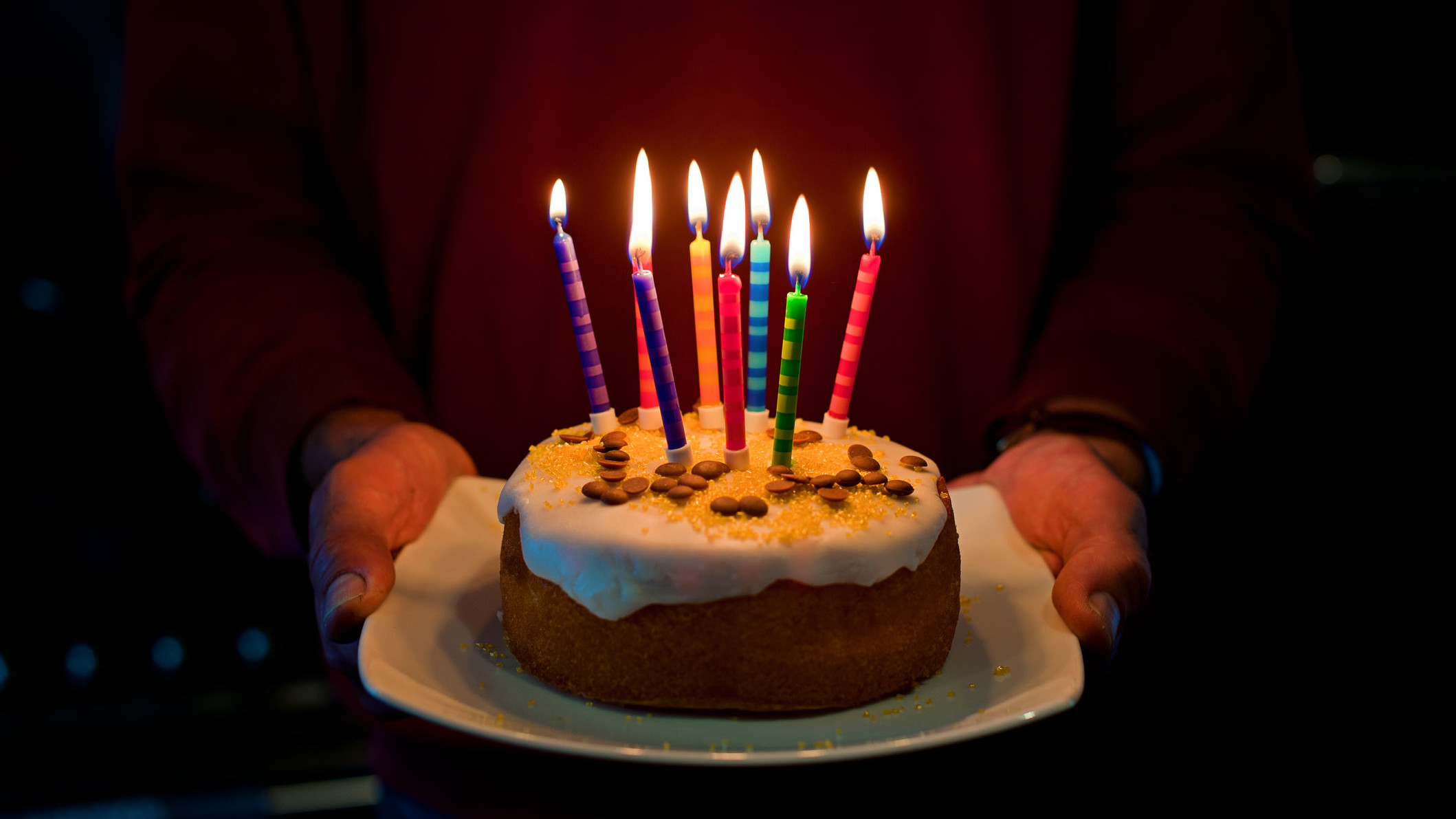Candles, Wishes, And The History Behind Our Birthday Cake Traditions
A crowd gathers around the honored one. The group recites its ritualistic chant as a flaming platter of confectionery is brought into the center of the circle. The flames sit just beneath the face of the honored one, who must extinguish the blaze without anyone's help—but thankfully, this rite of passage is performed annually, so the honoree is prepared. The chant ends, and a moment of silence befalls those gathered as the honored one closes their eyes in meditation before exhaling forcefully upon the offering. The ritual is now complete. Happy birthday!
Across the globe, different cultures have special ways of celebrating a person's birthday. In Russia, it's a personalized pie with a kind message carved into it just for the recipient, and in Chinese culture, longevity noodles are eaten on special occasions like the New Year and birthdays. The length of the noodles symbolize a long life for the person eating them. The "sing happy birthday and blow out the candles" way of doing things is the tradition throughout the United States, but the practice has its roots in European culture.
Like pretty much everything else in history, the tradition of blowing out candles might have started because of a desire to please an all-powerful being (or beings) in the sky. Going back to the ancient Greeks, round cakes were baked to honor the goddess of the moon, Artemis. It wasn't a birthday, exactly (more of an offering), but candles were put on the cake to represent the glow of the moon, and when the candles were blown out, the smoke from them would carry wishes up to the gods. Though I like to think the day I was brought into existence is significant enough to merit godly attention, I admit that the magic of this tradition probably wore off a long time ago.
Around the Middle Ages, Germans brought about a more birthday-centric celebration closer to what we see today in the U.S. Kinderfeste was a child's birthday celebration in which candles were placed on a cake and each one represented one year of life. An extra candle was added to the cake to bring hope for another full year of life, placed in the center of the cake as "the light of life." However, the candles weren't blown out immediately. Instead, the candles were allowed to burn all day long and basically coat the cake in wax. This was done because Germans believed children were especially susceptible to evil spirits on the day of their birth, so the family would keep watch and make sure the candles remained lit until after dinnertime. If a candle was close to burning out, they would replace it right away. At the end of the day, the birthday kid was told to blow out all the candles at once in hopes that their smoke would find its way up to Heaven, similar to the Greeks' offering to Artemis. What's a little wax on your slice when you're trying to keep a child connected to God, right?
Another birthday-cake-related tradition beyond candles, and the custom that immediately comes to my mind, is La Mordida. Translated as "the bite," La Mordida is a Mexican tradition in which, after blowing out the candles, the birthday person is encouraged to take a bite out of the cake. Everyone chants "¡que lo muerda, que lo muerda, que lo muerda!" ("bite it, bite it, bite it!"). As the honoree leans in to take a bite, someone usually seizes the opportunity to quickly smush the birthday person's face right into the cake. This tradition has both a literal and figurative oral history in that I can't seem to find any real details about how it started, but every Mexican family seems to naturally know how it works. In fact, viral fame has led some to take the tradition to the extreme.
Though it's all in good fun, I have my own mortifying mordida memory. One hot, sunny August day as my family sang to me, I leaned my innocent little face forward to blow out my candles. As soon as they were extinguished, I was eyeball deep in cake. Too young to take the joke and laugh off the fact that I had just snorted frosting, I cried and got my brother scolded instead. I refuse to lean too closely to any birthday cake to this day; just the thought of it brings back the feeling of buttercream lodged deep in my nostrils. Over two decades later I'm still plotting my revenge. My day will come.
At the moment, though, it's hard to imagine blowing out birthday candles in a COVID world. An entire party of people would be treated to a slice of cake that one person just forcefully exhaled onto—a mix of frosting and saliva droplets on every plate. Virtual parties and drive-by parades aside, I think we could learn something from history and even other cultures. Perhaps it's time to update tradition. Any ideas?
